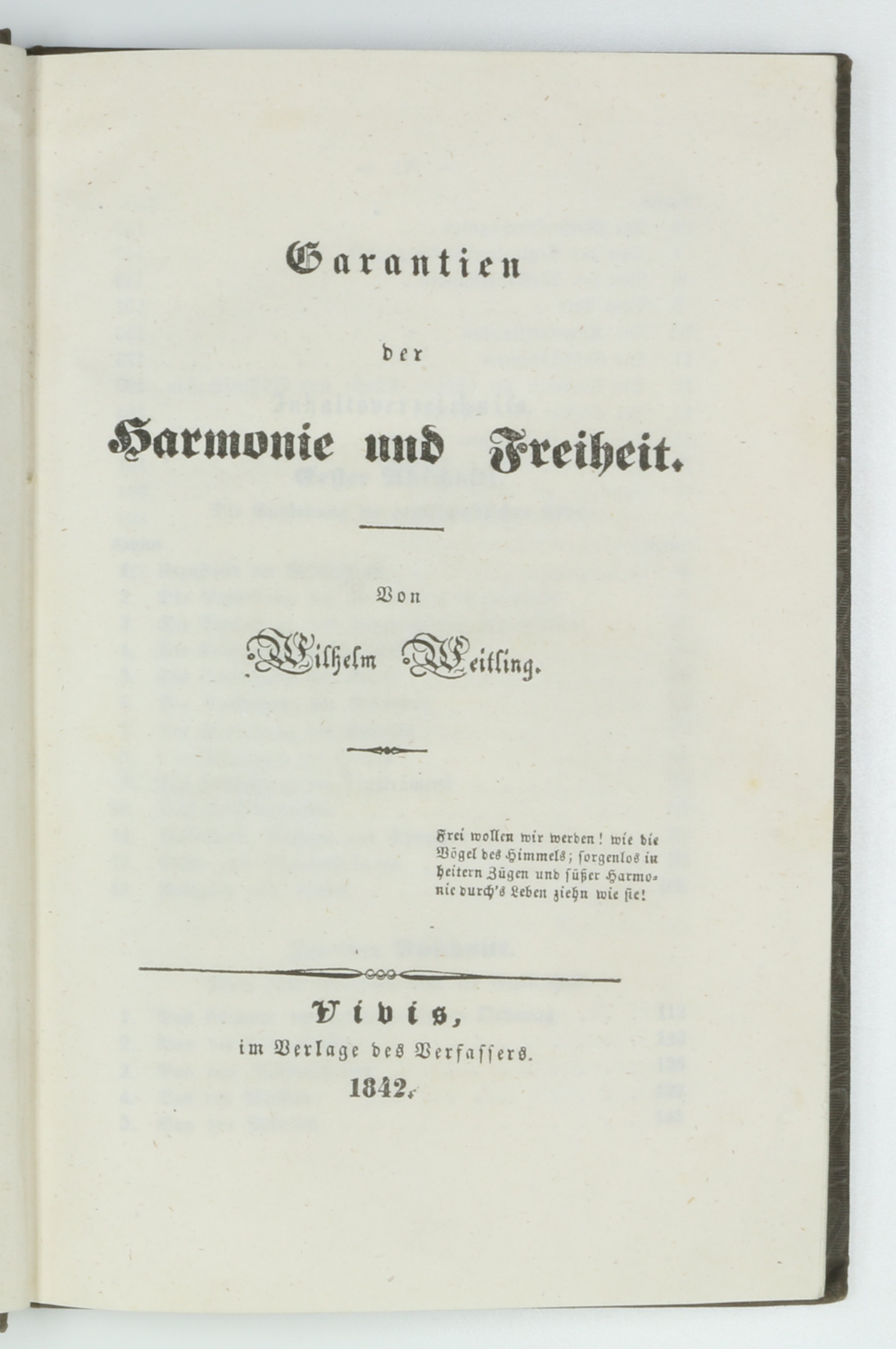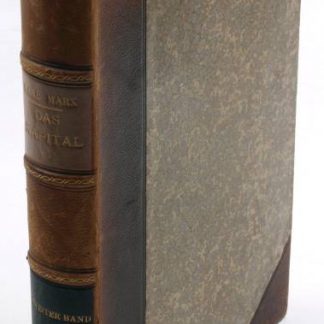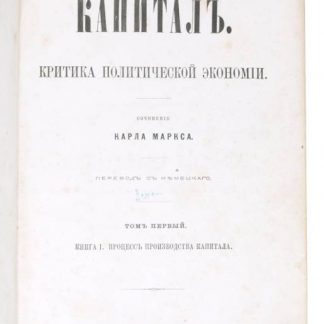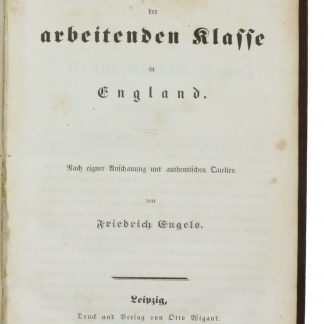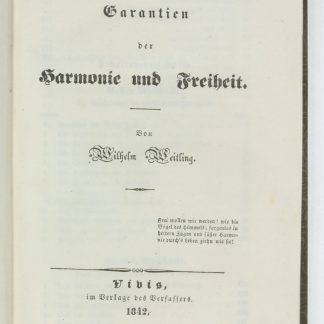Garantien der Harmonie und Freiheit.
8vo. XII, (2), 264 pp. Contemporary moirée cloth, spine lettered in gilt. Preserved in a modern slipcase.
€ 25.000,00
First edition.
The principal work of Wilhelm Weitling, who counts (together with Moses Hess) as one of the earliest communist agitators in Germany and its first leader of proletarian birth. The book has been identified as the catechism of German socialist workers before Marx and was praised by the latter as the "incomparable and brilliant début of the German working man". Weitling preached a Christian utopian socialism, by his own testimony derived from the New Testament and fashioned after the ideas of Fourier and Cabet. In his view, private property was unproblematic in a world with an abundance of unoccupied land, but in modern society individual property had become an injustice and the cause of misery to the people. Individual property therefore should be replaced by collective ownership, and though he hoped for a peaceful transition, Weitling foresaw that revolutionary violence might be inevitable.
Weitling was the illegitimate son of a French father and a German maidservant. He was apprenticed as a tailor in his native Magdeburg before travelling through Germany and settling in Paris in the 1830s. There he became acquainted with French socialist agitation and joined the revolutionary "Bund der Gerechten" (League of the Just). He moved to Switzerland in 1841 but was soon imprisoned and expelled, and spent the rest of his untiring life in Germany, England and America, where he continued his communist agitation among German immigrants in New York and founded the failed "Communia" colony in Wisconsin. Weitling exposed his ideas in three important works: his first printed publication, "Die Menschheit, wie sie ist und sein soll" (a brief pamphlet published in Paris in 1838), the present book, and "Das Evangelium eines armen Sünders" in 1845. The present work is considered the most complete exposition of his socialist thoughts and plans. It was issued privately in Vevey near Lausanne, and the publication (by the local printer Michod) was financed by funds collected from German comrades in France and Switzerland. A second edition appeared at Vevey in 1845, and a third in Hamburg in 1849.
Faint traces of a bookplate removed from the pastedown; minimal wear to lower corners. A very attractive copy, clean and without any browning.
Stammhammer I, 261. Quack IV, 312-328. Not in Kress, Goldsmiths' or Einaudi. GBV locates 3 copies in German libraries; OCLC locates 4 copies in US libraries.

